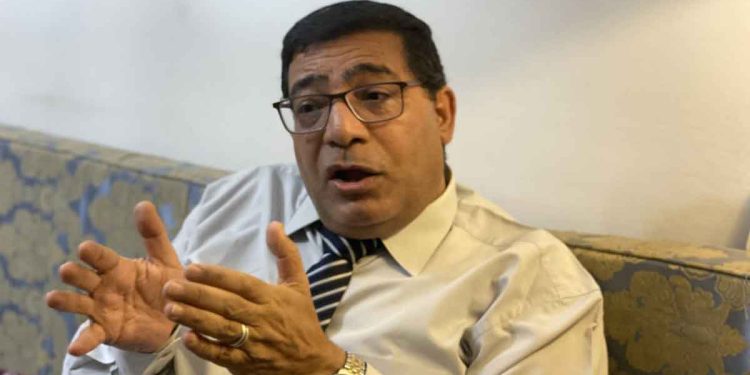In a troubling precedent undermining the essence of justice and fair trial guarantees, the Shorouk Misdemeanour Court in Egypt sentenced prominent economist Dr Abd al-Khaliq Farouk to five years in prison. The ruling, issued in absentia, was delivered without allowing the defence team to review the case files or present arguments—an alarming step that has provoked widespread concern among legal and human rights circles.
According to the verdict issued under case number 4527 of 2025, the court convicted Dr Farouk of “joining a terrorist group” and “spreading false news”, based on allegations linked to his use of social media and critical writings addressing Egypt’s official economic policies.
Dr Farouk’s lawyer stated that the verdict was issued “without completing the fundamental procedures”, as the court refused defence requests to examine the case documents and ordered the prosecution’s pleading to proceed without hearing the defence. The session concluded abruptly, and the judge left the courtroom before announcing the decision publicly. Such conduct starkly violates the principles of open justice, transparency, and the right to a fair hearing.
The proceedings highlight a deep crisis in judicial independence and due process. They also contradict Article 14 of the International Covenant on Civil and Political Rights, ratified by Egypt, which guarantees every defendant the right to adequate time and facilities to prepare a defence and to communicate freely with counsel of their choosing.
The case’s gravity stems from the fact that it targets an academic and economic expert known for his published research and analyses, not a political activist. Expanding prosecution in this manner to encompass intellectual and academic expression further entrenches the criminalisation of opinion and independent analysis.
Dr Farouk, aged 67, suffers from several chronic health conditions. His lawyer has raised serious concerns about his detention in Tenth of Ramadan Prison, citing poor conditions, denial of proper medical care, and lack of access to sunlight and exercise—circumstances that endanger his health and may amount to cruel or inhuman treatment under international human rights law.
This case forms part of a broader pattern of restrictions on freedom of expression in Egypt, where academics, economists, and writers increasingly face repeated prosecutions under pretexts such as “spreading false news” or “harming national security”.
By imprisoning Dr Farouk, the Egyptian authorities have sent a clear signal of intolerance toward criticism and independent scholarship. The verdict epitomises the continuing assault on academic freedom and on the right to free thought and expression, cornerstones of any just legal system.
What has occurred in Dr Abd al-Khaliq Farouk’s case cannot be seen as a routine legal measure. It represents a new stage in a systematic campaign to silence dissenting voices and undermine the integrity of the judiciary. It stands as a stark violation of Egypt’s constitution, its international obligations, and the very essence of justice itself.


























